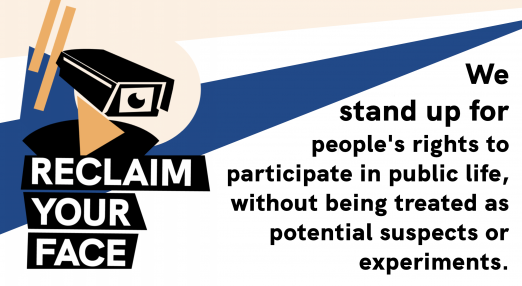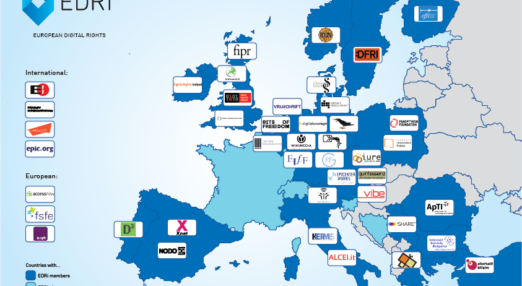Privacy and data protection
Filter resources
-

WTO trade talks must respect privacy
Together with over 40 consumer and digital rights groups, EDRi calls on global governments to place people’s fundamental rights to data protection and privacy at the centre of digital trade negotiations.
Read more
-

Booklet: Digital Defenders help kids defend their privacy online
Our popular publication “Your guide to Digital Defenders – Privacy for kids!“ has been updated!
Read more
-

Oracle and Salesforce taken to court in the Netherlands over GDPR infringement
Dutch Foundation “The Privacy Collective” is suing tech giants Oracle and Salesforce for the misuse of millions of people’s data under GDPR.
Read more
-

EDRi-gram, 12 November 2020
We have watched as governments have abused their power to put limits on people’s freedoms, and as companies have exploited the situation to gather ever more biometric data about us. The Reclaim Your Face coalition has risen up against the widespread abuse of our biometric data before and during the pandemic.
Read more
-

Campaign “Reclaim Your Face” calls for a Ban on Biometric Mass Surveillance
Civil society across Europe launches the “Reclaim Your Face” campaign, demanding that local and national authorities listen to their communities about the serious risks of using facial recognition and other biometric technologies in public spaces. The newly formed coalition calls to ban biometric mass surveillance, in reaction to the rapid and secretive roll out of invasive and unlawful technologies by police forces and local authorities in many European countries.
Read more
-

Booklet: Technological testing grounds, border tech is experimenting with people’s lives
The European Union is increasingly experimenting with high risk migration management technologies.
Read more
-

EDRi-gram, 28 October 2020
Data brokers are key actors in the hidden data ecosystem. The data they collect and later sell can be used for a range of different purposes, from commercial advertising to political campaigning, and in some worrying instances, law enforcement.
Read more
-

D3 opposes Portuguese efforts to make COVID app mandatory
In this post, EDRi's member Defesa dos Direitos Digitais (D3) discusses the proposed law on making the tracing app “Stayaway Covid” obligatory in Portugal and analyses the consequences of such legislation.
Read more
-

UK data regulator takes enforcement action to rein in data brokers’ use of people’s personal data
In a landmark decision that shines a light on widespread data protection failings by the entire data broker industry, the ICO has today taken enforcement action against Experian, based in part on a complaint Privacy International made in 2018.
Read more
-

Attention EU regulators: we need more than AI “ethics” to keep us safe
In this post, Access Now and European Digital Rights (EDRi) analyse recent developments in the EU AI debate and explain why we need a bold, bright-line approach that prioritises our fundamental rights.
Read more
-

Consumer and citizen groups continue to have serious concerns about Google Fitbit takeover
Regulators investigating Google’s takeover of Fitbit are reportedly seeking commitments from Google to allow them to clear this deal. It is widely recognised that this takeover raises serious competition and privacy concerns and risks harming citizens and consumers in several markets including wearables, advertising and digital health.
Read more
-

Member in the Spotlight series
“EDRi Member in the Spotlight” is a series in which our members introduce themselves and their work in an in-depth interview format.
Read more
